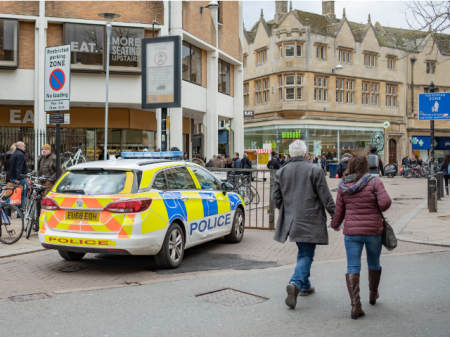
Reporting a Crime

Reporting a Crime
When a business has been the victim of a crime, or suspect they have been a victim of crime, it is essential that this is reported to the police.
Sometimes businesses are reluctant to report a crime as they may think it isn’t serious enough, it feels like a waste of time and effort to report it, or they are concerned about damage to the reputation of their business and losing the confidence of customers or clients.
In some cases, particularly when an employee is the person responsible, the employer may not even be clear that what has happened is an actual crime and may treat a criminal offence as misconduct.
There are many reasons why businesses may not report a crime, but there any even more reasons why they should. First and foremost it can lead to the identification of an offender and prevent them from doing it again.
It is also important for police to understand what crime is impacting businesses in their areas, by reporting crime they can identify patterns and hotspot areas which can enable them to alert businesses of the threat so they can take preventative action both in terms of physical crime as well as cybercrime and fraud.
Employers also have a safeguarding responsibility to those who work them. If they have been a victim of crime whilst at work, it is important the crime is reported to police so they are are able to make a statement and access victim support.
The National Business Crime Centre has produced guidance which not only deals with the how to report business crime, but also what services can be accessed when an employer or employee is a victim of that crime as well as advice on how to write an Impact Statement for Business (IBS), which under the Victims’ Code, all businesses or enterprises (such as charities) that have had criminal offences committed against them are entitled to make.
When a business has been the victim of a crime, or suspect they have been a victim of crime, it is essential that this is reported to the police.
Sometimes businesses are reluctant to report a crime as they may think it isn’t serious enough, it feels like a waste of time and effort to report it, or they are concerned about damage to the reputation of their business and losing the confidence of customers or clients.
In some cases, particularly when an employee is the person responsible, the employer may not even be clear that what has happened is an actual crime and may treat a criminal offence as misconduct.
There are many reasons why businesses may not report a crime, but there any even more reasons why they should. First and foremost it can lead to the identification of an offender and prevent them from doing it again.
It is also important for police to understand what crime is impacting businesses in their areas, by reporting crime they can identify patterns and hotspot areas which can enable them to alert businesses of the threat so they can take preventative action both in terms of physical crime as well as cybercrime and fraud.
Employers also have a safeguarding responsibility to those who work them. If they have been a victim of crime whilst at work, it is important the crime is reported to police so they are are able to make a statement and access victim support.
The National Business Crime Centre has produced guidance which not only deals with the how to report business crime, but also what services can be accessed when an employer or employee is a victim of that crime as well as advice on how to write an Impact Statement for Business (IBS), which under the Victims’ Code, all businesses or enterprises (such as charities) that have had criminal offences committed against them are entitled to make.






